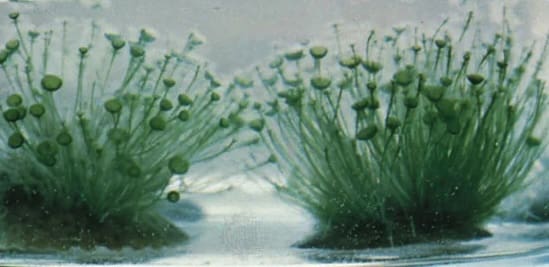Algae Summary

Algae, members of a group of predominantly aquatic photosynthetic organisms of the kingdom Protista. Algae have many types of life cycles, and they range in size from microscopic Micromonas species to giant kelps that reach 60 metres (200 feet) in length. Their photosynthetic pigments are more varied than those of plants, and their cells have features not found among plants and animals. In addition to their ecological roles as oxygen producers and as the food base for almost all aquatic life, algae are economically important as a source of crude oil and as sources of food and a number of pharmaceutical and industrial products for humans. The taxonomy of algae is contentious and subject to rapid change as new molecular information is discovered. The study of algae is called phycology, and a person who studies algae is a phycologist.
https://www.britannica.com/science/algae/Physical-and-ecological-features-of-algae
